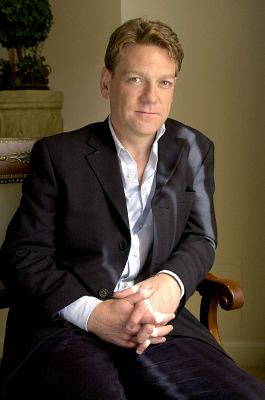|
Kenneth Branagh
Scroll down for movie list.
Biography from Leonard Maltin's Movie Encyclopedia:
It's got to be tough when you're still in your 20s and responsible critics are hailing you as "the new Olivier," but this dashing actordirector seems to be managing quite handily. A graduate of the Royal Academy of Dramatic Arts, he won immediate acclaim for his stage work; eventually he joined the Royal Shakespeare Company, but soon left to cofound the Renaissance Theatre Company, which toured the world performing the classics. Branagh made his feature-film debut in 1987 with perfor mances as an inept agent in High Season and a tortured war veteran in A Month in the Country He then took the Olivier myth head-on by starring in and directing a vibrant remake of Henry V (1989), earning Oscar nominations for both chores. Branagh stormed Hollywood to do the stylish mystery Dead Again (1991), directing and playing two roles: a fasttalking L.A. detective and (in flashbacks) a suave German conductor. His wife, Emma Thompson, costarred opposite him in Henry V and Dead Again
His next directorial effort, made on home turf, was the appealing contemporary comedy-drama Peter's Friends (1992), in which he also played the longsuffering husband of obnoxious TV star Rita Rudner. In 1993 he tackled Shakespeare once more in an exuberant rendering of Much Ado About Nothing showing tremendous command as actor, director, and adaptor. In these films his talents have been matched by the performances of his brilliant and versatile wife. (They also costarred in a 1993 television production of "Look Back in Anger.") He appeared (without billing) as a Nazi in the poorly received Swing Kids (also 1993).
With money he received as a prize for Henry V Branagh directed a short subject based on a Chekhov playlet, Swan Song (1992), starring John Gielgud and Rich- ard Briers, which was nominated for an Academy Award. Following these very personal projects he directed and starred as the good Doctor in a poorly received version of Mary Shelley's Frankenstein (1994) for producer Francis Ford Coppola. He wrote an autobiography, "Beginning," in 1989 (at the age of 28) in order to raise money for the second season of his Renaissance Theatre Company. |  |










